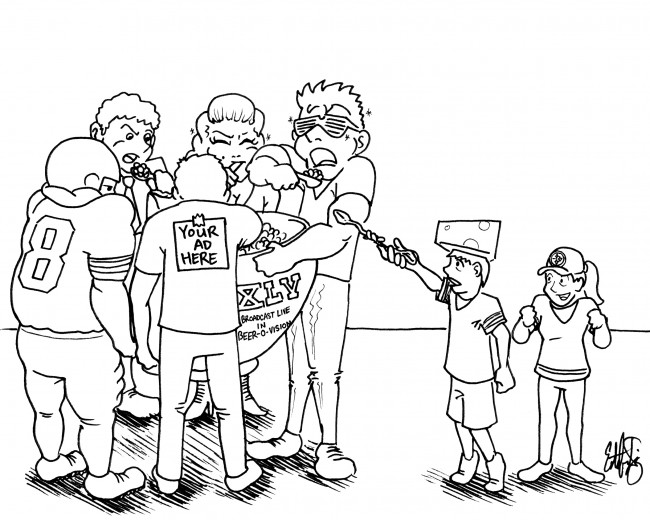Sunday night, the Green Bay Packers claimed the world championship in front of 103,219 fans at Cowboys Stadium.
There were people in the seats screaming, “Go, Pack, Go,” and other were waving their black and yellow towels to cheer on their Pittsburgh Steelers. Some of those in attendance were celebrities, such as legendary football coach John Madden and former President George W. Bush.
But of all the fans in the stands, few were part of the general public.
As with other recent Super Bowls, this year’s game used a ticket distribution policy that blocks all but the luckiest members of the general public from buying a seat.
The National Football League gives each participating team 17.5 percent of the Super Bowl tickets, five percent to the host team and 1.2 percent to each of the other NFL teams. The last 25.2 percent goes to the NFL.
Of the NFL’s ticket share, a small, undisclosed amount is sold to the general public. The Tampa Bay Super Bowl Host Committee, which organized Super Bowl XLIII two years ago, reports approximately one percent of Super Bowl tickets are sold to the general public.
Anybody wanting the right to purchase these tickets, at $800 face value, must enter a free drawing. The Dallas Morning News reported last May that only 500 tickets were being sold in the drawing for this year’s game, 2,000 were sold for 2010’s Super Bowl and 1,000 for the 2009 matchup.
That means that fewer tickets were sold to the general public in a stadium with a larger capacity (105,000) than that of the previous two stadiums (75,540 in Miami and 65,700 in Tampa).
Those tickets also carried a face value of $800.
Because of temporary seating problems, 1,200 fans were left seatless Sunday, but 850 were given other seats in the stadium by the NFL and the Cowboys. The other 400 were each given a $2,400 refund, an Associated Press report said.
The lack of public access to tickets and the exorbitant price is evidence that the NFL should more strongly prioritize fan experience over profit in its Super Bowl ticket distribution.
Two other major sports leagues, Major League Baseball and the National Basketball Association, both place tickets for championship games on sale just like any other game of the season.
Of course tickets for the MLB’s World Series and the NBA’s Finals often sell out in a matter of minutes, but the public does have the chance to purchase most of the seats in the stadiums.
Granted, the format is different in the MLB and NBA, with teams playing a series of games and the first team to win four games being crowned champion. But even if a fan was fortunate enough to secure tickets to every game of last year’s World Series at face value, for example, and the series lasted seven games, the cost would have been less than a Super Bowl ticket.
The cheapest ticket at the Texas Rangers’ ballpark was $75, and the San Francisco Giants offered $90 tickets at their stadium.
Arguments about the glamour and spectacle of the Super Bowl should be tossed aside when considering the $800 price tag and extremely limited availability. The NFL’s current response to such requests is simply unacceptable.
“Fans do go to the game,” Brian McCarthy, an NFL spokesman, told the Dallas Morning News. “It isn’t simply a corporate audience.”
Fans of the game realize what the Super Bowl is. It is the last game of the season, pitting the two teams that have lasted the gauntlet of 16 regular season games and the playoffs to play one last time.
The Associated Press reprinted a tweet from NFL spokesman Greg Aiello about the 400 fans who had no seats when they arrived at Cowboys Stadium. Some of those fans had the opportunity to see the game on monitors inside the stadium. They “watched game in club w/free food, soft drinks + merchandise,” Aiello tweeted.
What Aiello and the NFL either do not realize or refuse to acknowledge is that those fans don’t want to see television. They did not come for free food, soft drinks or merchandise. They paid $800 to see football. They are the true football fans and a microcosm of the problem with Super Bowl ticket distribution: the fans are left out in the cold.
